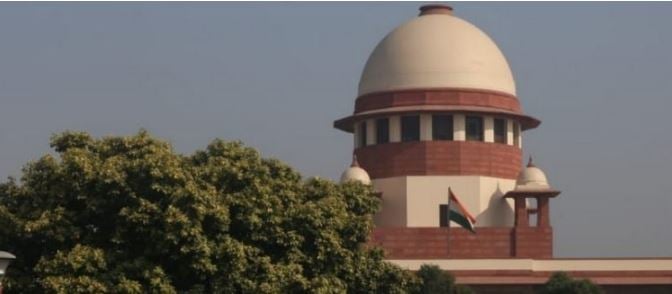The Supreme Court has acquitted a man convicted and sentenced to life imprisonment under Section 302 IPC, while modifying the conviction for the offence punishable under Section 304-I, IPC.
A two-judge bench of Justice Dr. Dhananjaya Y. Chandrachud and Justice M. R. Shah said, “There is no evidence that there was any premeditation on the part of the accused. As per the case of the prosecution, there was a sudden quarrel with respect to money and the accused pushed the deceased and stood on the abdomen in the heat of passion upon a sudden quarrel.
“Therefore, the case would fall under exception 4 to Section 300 IPC. As per explanation to exception 4 to Section 300 IPC, it is immaterial in such cases which party offers the provocation or commits the first assault. Therefore, both the courts below have materially erred in holding the appellant-accused guilty for the offence punishable under Section 302 IPC. According to us, at the most, it can be said that the appellant-accused has committed the offence under Section 304-I IPC,” said the Apex Court.
The Court has come to the above conclusion after considering two question of law in the present case, (a) whether, in the facts and circumstances of the case, can it be said that the accused committed the murder of the deceased as defined under Section 300 IPC and therefore (b) whether both the courts below rightly convicted the accused for the offence under Section 302 IPC or whether the conviction can be altered to Section 304-I, IPC.
In the present, there was sudden quarrel between the accused and the deceased and the accused pushed the deceased and sat on the abdomen. It was submitted by the counsel for accused that there was no intention on part of the accused. It was only a day after the incident the deceased was taken to hospital where he eventually died of septicaemia. He submitted that the case would fall under the fourth exception of Section 300 IPC. He prayed to alter the conviction of appellant/accused from Section 302 IPC to Section 304-I IPC.
The Counsel for the respondent-State of Chhattisgarh vehemently opposed the submission and said the deceased died within three days after being admitted to the hospital and the court below rightly held that the murder of deceased committed by the accused does not come under the fourth exception of Section 300 IPC.
The Court said, “it can be seen that the action of the appellant-accused to push the deceased down and stood up on his abdomen was preceded by a quarrel between the deceased and the accused. From the evidence on record and as per the case of the prosecution, it cannot be said that the appellant-accused had the intention of such action on his part to cause death or such bodily injury to the deceased which was sufficient in the ordinary course of nature to cause the death of the deceased.”
“Even the case would not fall under clause 3 of Section 300 IPC. In the facts and circumstances of the case, it cannot be said that there was any intention on the part of the accused of causing bodily injury to the deceased and the bodily injury intended to be inflicted was sufficient in the ordinary course of nature to cause death,” said the Court.
The Court further stated, it is to be noted that the decreased was admitted to the hospital after 24 hours & thereafter he died within three days due to septicaemia. If he was given the treatment immediately the result might have been different. In any case, there was no premeditation on the part of the accused; the accused did not carry any weapon; quarrel started all of a sudden and that the accused pushed the deceased and stood on the abdomen and therefore, as observed hereinabove, the case would fall under exception 4 to Section 300 IPC and neither clause 3 of Section 300 nor clause 4 of Section 300 shall be attracted. Therefore, as observed hereinabove, at the most, the accused can be said to have committed the offence under Section 304-I, IPC.”
31120-2019-36-1502-26015-Judgement-11-Feb-2021Read Also: Mutual fund scheme: Supreme Court upholds validity of e-voting process


